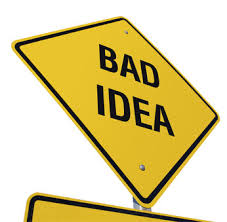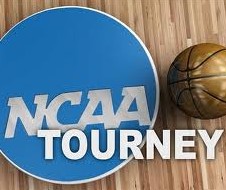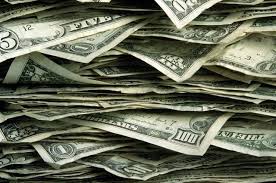 There is a curious thing happening right now. As the search for the replacement Executive Director for Billy Hunter at the NBA players’ union drags into its second year with no end in sight, there is a tremendous void not being filled.
There is a curious thing happening right now. As the search for the replacement Executive Director for Billy Hunter at the NBA players’ union drags into its second year with no end in sight, there is a tremendous void not being filled.
The league and Commissioner Adam Silver, being bright and experienced, have decided to take this opportunity and fill it themselves.
The missing element is the voice of the players. And their silence is deafening.
As the NBPA office continues to shrink through attrition, there is little business getting done. With the Collective Bargaining Agreement open for renegotiation in just a couple of years, the league has decided to start now by shaping public opinion around some of the non-revenue issues that were never completed from the last collective bargaining negotiations.
At the top of their talking points agenda is raising the age limit from 19 to 20.
Currently there is no PR presence at the Players Association. Meanwhile, current interim Executive Director Ron Klempner is triaging the office in anticipation of a new director being hired, so he is not issuing any position statements.
The NBA has no such constraints and is using this as an opportunity to enter statements into the record unchallenged. As these statements are continually repeated by others, they start to seem like the truth.
Exhibit A: Having a 20-year-old age limit to enter the NBA is a good thing.
 This is the current message being circulated. The league knows that it is a labor violation to restrict a player from pursuing employment unless it is done in agreement with the Players Association, creating an exemption to the law. So now the league is campaigning in public to build support for its position.
This is the current message being circulated. The league knows that it is a labor violation to restrict a player from pursuing employment unless it is done in agreement with the Players Association, creating an exemption to the law. So now the league is campaigning in public to build support for its position.
We are all starting to hear how “one and done” is bad for both the NBA and NCAA, which essentially makes it bad for basketball. Players are entering the NBA before they are ready, causing all kinds of tragic consequences. The college game is suffering mightily from the talent drain. Everyone would be better served if players were required to stay in college for two years instead of one.
Sound familiar? That’s because only one side is making a public argument.
Silver is partially correct. Raising the age limit is fantastic for everyone … except the players. For the NCAA, it guarantees that their brightest stars provide another season of free labor. The coaches don’t have to recruit as much. NBA scouts have an easier time telling who has staying power. All this while the players are asked to donate millions of dollars of free services to these organizations that are making literally billions of dollars of revenue.
Sounds like a tough sell to get the players to agree, don’t you think?
Wouldn’t you love to be a fly on the wall when Silver tries to explain why players like Jabari Parker, Tyler Ennis and Andrew Wiggins should voluntarily agree to be required to stay out of the league for an extra year?
SILVER: “Hi guys, I’d like to talk to you about something. I’d like you to agree to stay in college for two years instead of one. What do you say?
GUYS: “ We are all probably going to be lottery picks and make somewhere between $2 million and $4 million a year. How much will we make if we stay in college?”
SILVER: “Well, actually nothing. The NCAA and your school will make it all. As a matter of fact, you are prohibited from making anything. If you are caught making even one dollar, your entire college career will be wiped from the history books along with your entire team. But you will get the pleasure of playing college ball.”
GUYS: “Really, what about after? I probably get residuals from my highlights, merchandise, and other stuff, right?”
SILVER: “Well, not really. The NCAA owns everything you ever did or ever will do forever. You don’t get any of that.”
GUYS: “How do I make up that money if I stay in school?
SILVER: “Actually, you don’t. As a matter of fact, if you start later, then your rookie contract ends later, and when you near the end of your career we limit your earnings because of age. And we will probably add more rules limiting salaries in the future. But money isn’t everything. Just think of all the fun you will have being on campus and playing in the NCAA Tournament.”
 GUYS: “But if we are in the NBA we can have fun, too, right? I heard that the NCAA gets over $1 billion a year just for the NCAA Tournament. If we go to the Final Four or win the championship, what do we get?”
GUYS: “But if we are in the NBA we can have fun, too, right? I heard that the NCAA gets over $1 billion a year just for the NCAA Tournament. If we go to the Final Four or win the championship, what do we get?”
SILVER: “Well, the NCAA keeps all of that money and pays some to the schools so other sports can play, too. So even though you don’t make anything, you can be satisfied that hundreds of coaches, administrators and other athletes get their salaries and scholarships paid for by you. See, their sports don’t make any money. But you have an extra year to get better and mature as a person. How about that? Pretty cool, hunh?”
GUYS: “Let me see. In college we play about 35 games, with many of those against creampuffs. In the pros, won’t we get to play about 100 games against pros? Won’t I get better faster in the NBA? Plus the playoffs can last four full seven-game series, and if we make it, we get a bonus check, right? We might lose after only one game in the NCAA Tournament. So won’t I mature faster as a pro than I will in college? In college, I have to spend most of my time going to classes and studying for tests while playing basketball full-time. In the NBA, I can really concentrate on my game full-time.”
SILVER: “Think about the coaches. If you leave, they have to work harder to recruit and teach new players what to do.”
GUYS: “But don’t the top coaches like Coach K, Jim Boeheim, John Calipari, and Rick Pitino make millions of dollars a year to do that exact job? And don’t they have lots of staff to do most of the recruiting for them? And I get nothing. Plus what if I get hurt?”
SILVER: “Now there’s the good news! We are considering a system where you will get insurance paid for, so you will be covered.”
GUYS: “So if I have a bad injury I will be paid and be set for life?”
 SILVER: “Well, actually, the insurance company will hire a bunch of experts to testify that you didn’t get drafted because you suck and your injury had nothing to do with it. Or you didn’t rehab correctly, or you are too short, or whatever else they can think of. And if by some miracle you win, they will appeal. But don’t worry; that hardly ever happens. Besides, how selfish can you be? Can’t you see that you are ruining the game with this one and done?”
SILVER: “Well, actually, the insurance company will hire a bunch of experts to testify that you didn’t get drafted because you suck and your injury had nothing to do with it. Or you didn’t rehab correctly, or you are too short, or whatever else they can think of. And if by some miracle you win, they will appeal. But don’t worry; that hardly ever happens. Besides, how selfish can you be? Can’t you see that you are ruining the game with this one and done?”
GUYS: “What criteria are you using to say we are ruining the game? What about the record NBA profits, the record TV deals, the speed that schools are changing conferences to make even more money? Is it the fan frenzy at Tournament time? Just what is it that we are ruining?
SILVER: “We will get back to you.”
As you can easily see, volunteering to raise the age limit is not in the players’ interest. The only way to accomplish it is to appeal to the veteran players to backstab the incoming rookies. That is how the rookie wage scale was passed in the first place.
Back during the 1999 lockout, the league played on the players’ jealousy that unproven rookies were making more than proven veterans. Now that the scale is in place, however, I don’t know that the current players care enough to agree to raise the age limit, especially with so many star players who have already benefited from the lower age limit. It would seem pretty hypocritical of them to close the door now.
But it all boils down to what the league puts on the table. The NBA wants the NCAA to be in on the discussion as well. Isn’t that a lot like two wolves and one sheep deciding what to have for dinner?
Danny Schayes is a retired 18-year-veteran of the NBA, a professional broadcaster and soon-to-be-published author now penning NBA columns for SheridanHoops. Follow him on Twitter.
MORE FROM DANNY SCHAYES:
IF YOU THINK JAMES DOLAN IS A BAD OWNER …
BASKETBALL VS. MARKETING: IS THE TAIL WAGGING THE DOG?
WILL NEW FACES HELP IN INDIANA, L.A.? OR WILL WE SEE ADRIAN DANTLEY 2.0?
WHERE IS THE LOVE? SAG LAWYER AMONG CANDIDATES TO REPLACE HUNTER
ARE NBA PLAYERS GETTING PLAYED AGAIN AS UNION HUNTS FOR NEW CHIEF?
IN THE NBA, SOMETIMES YOU CAN GO HOME AGAIN
ARE TODAY’S GREAT SCORERS BETTER?
WHEN STARS GET HURT, IT’S BAD FOR THE LEAGUE
PARDON ME, BUT INDIANA-MIAMI MEANT NEXT TO NOTHING
WHAT IT’S REALLY LIKE TO BE TRADED
HAZING: IT’S A LOCKER ROOM, NOT AN ENCOUNTER GROUP
ADAM SILVER NEEDS TO EMBRACE THE NBA’S LIVING PIONEERS
Great site you have here but I was curious if you knew of
any community forums that cover the same topics discussed in this article?
I’d really love to be a part of online community where
I can get feed-back from other experienced people that share
the same interest. If you have any recommendations, please let me know.
Thanks a lot!
Have a look at my weblog translate online
So you say the one that gets shafted are the nba players, and yet your argument is from ncaa players? Why would the nba players care about guys who arent yet part of their community?
The 1andDone is diluting the NBA product. Outside of Moses Malone and LeBron, how many players entered the NBA young that were physically, mentally able to contribute to their team winning? And LeBron didn’t do much in the first year, he still had to develop.
Young players have talent, and potential, which gets you nothing in the short term. And it tells you nothing about the long term either.
In the past 14 years only 10 players that were 1&Done or younger averaged 10 points or more in their rookie year.
Only 3, THREE, averaged more than 20 a game.
Yes this is selective stat pulling, but it proves a greater point. Young players aren’t ready. Mostly they just sit on the bench and watch.
1 Carmelo Anthony 21.0
2 LeBron James 20.9
3 Kevin Durant 20.3
————————————–
4 Kyrie Irving 18.5
5 Bradley Beal 13.9
6 Anthony Davis 13.5
7 Dwight Howard 12.0
8 Luol Deng 11.7
9 Chris Bosh 11.5
10 J.R. Smith 10.3
During that same time period, 61 players that were 3 years or more out of high school averaged 10 points a game in their rookie seasons. 6 SIX times more players are able to contribute when they develop before entering the NBA.
Yes, it means the NBA gets free development from other sources. And that’s something the NBA should embrace, as a business. AND the players should too, since they’re investing in that business. Because it means that the product on the floor is better. And a better product SELLS, which means more money for the players (see what I ddi there?)
Alternately, I think the NBA should invest at least twice as much in the NBDL, and use it like MLB uses their minor league.
It would be better for the Fans, better for the NBA, better for the NCAA.
It only wouldn’t be better for maybe 10 people, some of whom would be getting overpaid based on perceived potential.
I believe Spock was correct when he said “the good of the many out weighs the good of the few.”.
I think Schayes points out that the argument that players develop better in college is a hard line to take – fewer games, lower competition, less skilled teammates… how does one improve into a better player in these conditions? So I don’t think it’s better for the NBA.
I don’t see how it’s better for fans, if you mean fans of the NBA – and as the NBA has an international audience, which the NCAA doesn’t really, more fans see better players on a bigger stage in better competition sooner, so it seems like a lower age limit is better for fans.
It’s certainly better for the NCAA, no argument.
Players who have been in the league 5-10 years get overpaid, some for no real reason (Rashard Lewis) and some on potential they never live up to (Gilbert Arenas). Being in college or not has no bearing on that.
And if it only suits ten players to jump to the NBA… that’s fine. The rest can stay at college, with more playing time due to superstars going to the NBA, and get a free education while doing it.
Hmm, actually I think I confused your point based on your second sentence… are you arguing for raising the limit or lowering it?
I know you’re a former pro athlete, and maybe you have a different perspective in things, but reading things like this below makes me cringe.
“GUYS: “ We are all probably going to be lottery picks and make somewhere between $2 and $4 million a year. How much will we make if we stay in college?”
AS: “Well, actually nothing.”
I don’t get why. I think the point is 100% correct.
It’s hard for me to accept that staying in college is a bad thing. The reality is that 95% of these guys aren’t going to have careers that last longer than 6-7 years, and 98% of them aren’t going to command big money.
They’re going to need options when their pro career is finished.